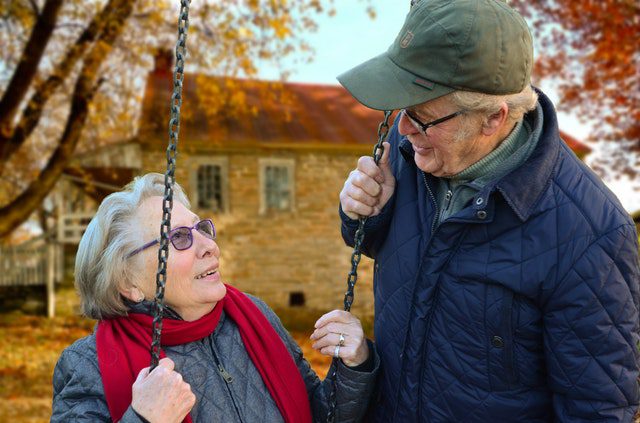Aged care plays a vital role in healthcare, providing specialized services and support to meet the needs of the elderly population.
With the aging population growing rapidly, it is crucial to establish a strong aged care system that upholds the well-being and dignity of our senior citizens.
The pillars of aged care are the foundational principles that form the basis of providing high-quality care for older adults. To discover more about residential aged care, please visit Medical & Aged Care Group. In this, we will explore the pillars of aged care, which encompass the following:
Person-Centered Care
A care philosophy that emphasizes the importance of addressing the individual needs and preferences of older adults. This approach acknowledges that each elderly individual is distinct and requires care that is customized to their specific circumstances.
Person-Centered Care entails treating older adults with respect and dignity, giving them the ability to make choices about their care, and including them in the planning and provision of their care. This strategy is vital in promoting the physical, emotional, and social well-being of older adults.
Quality and Safety
Second, essential pillars of aged care, guaranteeing that older adults receive care that is secure, effective, and appropriate. Quality care comprises providing evidence-based care that is consistent and responsive to the evolving needs of older adults. It also involves ensuring that care is delivered promptly and efficiently, with clear communication and coordination among healthcare providers. Safety involves recognizing and reducing potential risks to older adults, such as falls, medication errors, and infections, to reduce harm and promote recovery.
A Skilled Workforce
A vital pillar of aged care encompasses healthcare professionals, support staff, and volunteers. The workforce must possess the requisite knowledge, skills, and attitudes to offer quality care to older adults. This includes an in-depth understanding of the aging process, the ability to communicate effectively with older adults, and the capacity to provide respectful, empathetic, and culturally sensitive care. Skilled workers also require ongoing training and development to remain up-to-date with the most recent advances in aged care and to provide the best possible care to older adults.
Access and Equity
Considered essential pillars of aged care, ensuring that older adults can access care that is affordable, available, and of high quality, regardless of their background or situation. This requires identifying and removing barriers to care, such as geographic location, language, culture, and socio-economic status, to guarantee that all older adults have equal access to care. Access and equity also necessitate fostering diversity and inclusion in the aged care workforce and addressing the specific requirements of diverse groups of older adults, such as those from Indigenous, multicultural, or LGBTI communities.
Innovation and Technology
This is transforming the aged care sector, offering new prospects to enhance the quality and effectiveness of care. This includes the adoption of electronic health records, telehealth, and assistive technologies like mobility aids, hearing aids, and home monitoring systems. These technologies can enhance communication among healthcare providers, enable remote monitoring of older adults, and improve the quality of life for older adults.
Effective communication
Another essential in healthcare and can make a significant difference in patient outcomes. Healthcare professionals need to listen to patients, involve them in decisions about their care, and communicate in a clear and respectful manner. Good communication helps build trust and understanding between healthcare professionals and patients, leading to improved patient satisfaction, better adherence to treatment plans, and ultimately better health outcomes.
Obtaining valid consent from patients before providing any treatment or care is an essential ethical and legal obligation of healthcare professionals. Patients have the right to make informed decisions about their care. Healthcare professionals must provide them with clear and concise information about their condition, treatment options, potential risks, and benefits. This information enables patients to make informed decisions that align with their values, preferences, and goals, ultimately contributing to better health outcomes and patient satisfaction.
“In healthcare, safeguarding patient safety is of utmost importance, and it is imperative for healthcare providers to take every essential action to prevent harm to patients. This entails implementing infection prevention protocols, minimizing fall risks, and ensuring safe and effective management of medications.”
Encouraging patient empowerment is crucial in healthcare, as it involves actively supporting patients to take charge of their health and well-being. This requires equipping them with the necessary knowledge and skills to manage their conditions effectively, promoting self-care and self-management, and providing necessary support whenever required.
Adhering to these principles enables healthcare professionals to offer patient-centered care that is both safe and effective, while also upholding patients’ rights and preserving their dignity.Top of Form
Conclusion:
To conclude, the pillars of aged care form the foundation for providing exceptional care to older adults. By focusing on person-centered care, quality and safety, a skilled workforce, access and equity, and innovation and technology, the aged care industry can ensure that older adults receive care that is not only safe and effective but also meets their unique needs. As our population continues to age, it is crucial that we prioritize investment in aged care, creating a system that can adapt to the evolving needs of older adults and support their health, well-being, and dignity.






